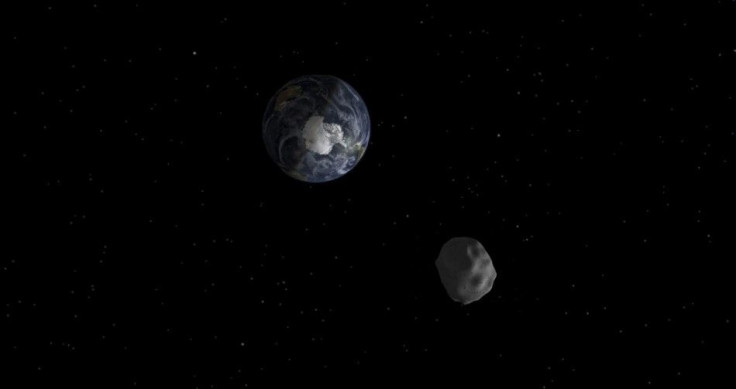US Cites 'Planetary Defense' As Reason For Keeping Old Nuclear Weapons

The United States has been found to have breached its commitment to get rid of its old nuclear weapons by 2015 because it believes the arsenal can be used to destroy asteroids to save planet Earth. The Government Accountability Office recently examined the efforts of the U.S. National Nuclear Security Administration, or NNSA, in dismantling the large majority of the country's old nuclear warheads built during the Cold War. What it found was that not only was the NNSA delayed, it actually decided to keep a small number of the nuclear warheads as "planetary defense" against asteroid threats.
Some of the old nuclear weapons were scheduled for disassembly in 2015. But the NNSA said they were "irreplaceable national asset" that could be used to defend the planet against earthbound asteroids. The decision seemed to be spurred from remnants of the 1998 Bruce Willis movie "Armageddon," opines Josh Hicks of The Washington Post.
"NNSA officials told us that CSAs [canned subassemblies] associated with a certain warhead indicated as excess in the 2012 Production and Planning Directive are being retained in an indeterminate state pending a senior-level government evaluation of their use in planetary defense against earthbound asteroids. While NNSA has declared these CSAs to be excess and, until March 2013, had scheduled them for disassembly beginning in fiscal year 2015, the national labs' retention letter has also characterized the CSA associated with this warhead as an "irreplaceable national asset," GAOs report said.
Many may laud the seeming noble intentions behind the retention decision. However, many are also jittery over the idea of keeping nuclear weapons on an "as-needed" basis.
Eric Schlosser, author of the book "Command and Control," told Mother Jones earlier that there have been countless occasions that the U.S. have come close to an accidental domestic nuclear detonation. It also has to be considered that more than 700 "significant" accidents involving nuclear weapons were registered between 1950 and 1968 alone.
On the idea of asteroids hitting Earth, it's not at least the next 100 years that a rock 6-mile wide will strike the planet. This is the same size that may have caused the extinction of the dinosaurs.
Portal Chinatopix.com reported the U.S.'s "planetary defense" reason to keep and use its nuclear missiles will break the 1967 Outer Space Treaty. The treaty prohibits the use of nuclear weapons in space.





















